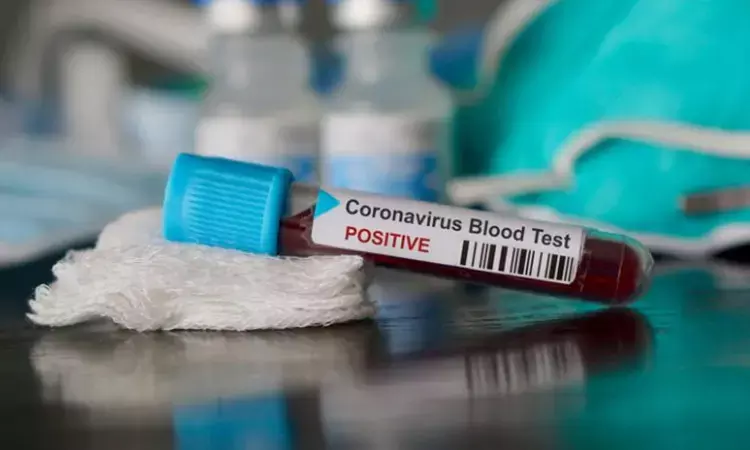- Home
- Medical news & Guidelines
- Anesthesiology
- Cardiology and CTVS
- Critical Care
- Dentistry
- Dermatology
- Diabetes and Endocrinology
- ENT
- Gastroenterology
- Medicine
- Nephrology
- Neurology
- Obstretics-Gynaecology
- Oncology
- Ophthalmology
- Orthopaedics
- Pediatrics-Neonatology
- Psychiatry
- Pulmonology
- Radiology
- Surgery
- Urology
- Laboratory Medicine
- Diet
- Nursing
- Paramedical
- Physiotherapy
- Health news
- Fact Check
- Bone Health Fact Check
- Brain Health Fact Check
- Cancer Related Fact Check
- Child Care Fact Check
- Dental and oral health fact check
- Diabetes and metabolic health fact check
- Diet and Nutrition Fact Check
- Eye and ENT Care Fact Check
- Fitness fact check
- Gut health fact check
- Heart health fact check
- Kidney health fact check
- Medical education fact check
- Men's health fact check
- Respiratory fact check
- Skin and hair care fact check
- Vaccine and Immunization fact check
- Women's health fact check
- AYUSH
- State News
- Andaman and Nicobar Islands
- Andhra Pradesh
- Arunachal Pradesh
- Assam
- Bihar
- Chandigarh
- Chattisgarh
- Dadra and Nagar Haveli
- Daman and Diu
- Delhi
- Goa
- Gujarat
- Haryana
- Himachal Pradesh
- Jammu & Kashmir
- Jharkhand
- Karnataka
- Kerala
- Ladakh
- Lakshadweep
- Madhya Pradesh
- Maharashtra
- Manipur
- Meghalaya
- Mizoram
- Nagaland
- Odisha
- Puducherry
- Punjab
- Rajasthan
- Sikkim
- Tamil Nadu
- Telangana
- Tripura
- Uttar Pradesh
- Uttrakhand
- West Bengal
- Medical Education
- Industry
JAMA Study finds wide variations of neutralizing antibodies in recovered patients of COVID-19

A recent study from China has found varying levels of Neutralising antibody (Nab) titers in COVID recovered patients. The recent study was published in the journal, "JAMA Internal Medicine" 2020.
The havoc caused by the coronavirus SARS-CoV-2 is continuing. Research on various treatment modalities for treating the COVID virus is running at an unprecedented speed. Of late much work was focused on analyzing the antibodies from COVID recovered serum. While a team of researchers is struggling to study the structure and function of antibodies for vaccine development, another team is toiling to study if antibodies can be isolated and given as treatment to patients. Researchers from Shanghai Public Health Clinical Center, Shanghai, China conducted a study to examine the association between clinical characteristics and levels of NAbs in patients who recovered from COVID-19.
The authors conducted a cohort study from January 24 to February 26, 2020. They were followed up until March 16, 2020. There were 175 patients with mild symptoms of COVID-19 who were hospitalized and were diagnosed and confirmed by reverse transcriptase-polymerase chain reaction testing of nasopharyngeal samples. The primary outcome was SARS-CoV-2–specific NAb titers. Secondary outcomes included spike-binding antibodies, cross-reactivity against SARS-associated CoV, the kinetics of NAb development, and clinical information, including age, sex, disease duration, length of stay, lymphocyte counts, and blood C-reactive protein level.
Of the 175 patients with COVID-19, 93 were female (53%) and the median age of the patients was 50 years. The median length of hospital stay was 16 days, and the median disease duration was 22 days.
The principal findings of the study were:
• Variable levels of SARS-CoV-2–specific NAbs were observed at the time of discharge.
• There were 10 patients whose NAb titers were less than the detectable level of the assay and 2 patients who showed extremely high titers of Nabs.
• NAbs were detected in patients from day 4 to 6 and reached peak levels from day 10 to 15 after disease onset.
• NAbs were unable to cross-react with SARS-associated CoV and NAb titers correlated with the spike-binding antibodies targeting S1, receptor binding domain, and S2 regions.
• NAb titers at the time of discharge were significantly higher in the 82 men than those in the 93 women and at the time of follow-up in 56 male patients vs 61 female patients.
• Plasma NAb titers were significantly higher in 56 older and 63 middle-aged patients than in 56 younger patients.
BDS, MDS
Dr.Niharika Harsha B (BDS,MDS) completed her BDS from Govt Dental College, Hyderabad and MDS from Dr.NTR University of health sciences(Now Kaloji Rao University). She has 4 years of private dental practice and worked for 2 years as Consultant Oral Radiologist at a Dental Imaging Centre in Hyderabad. She worked as Research Assistant and scientific writer in the development of Oral Anti cancer screening device with her seniors. She has a deep intriguing wish in writing highly engaging, captivating and informative medical content for a wider audience. She can be contacted at editorial@medicaldialogues.in.
Dr Kamal Kant Kohli-MBBS, DTCD- a chest specialist with more than 30 years of practice and a flair for writing clinical articles, Dr Kamal Kant Kohli joined Medical Dialogues as a Chief Editor of Medical News. Besides writing articles, as an editor, he proofreads and verifies all the medical content published on Medical Dialogues including those coming from journals, studies,medical conferences,guidelines etc. Email: drkohli@medicaldialogues.in. Contact no. 011-43720751


